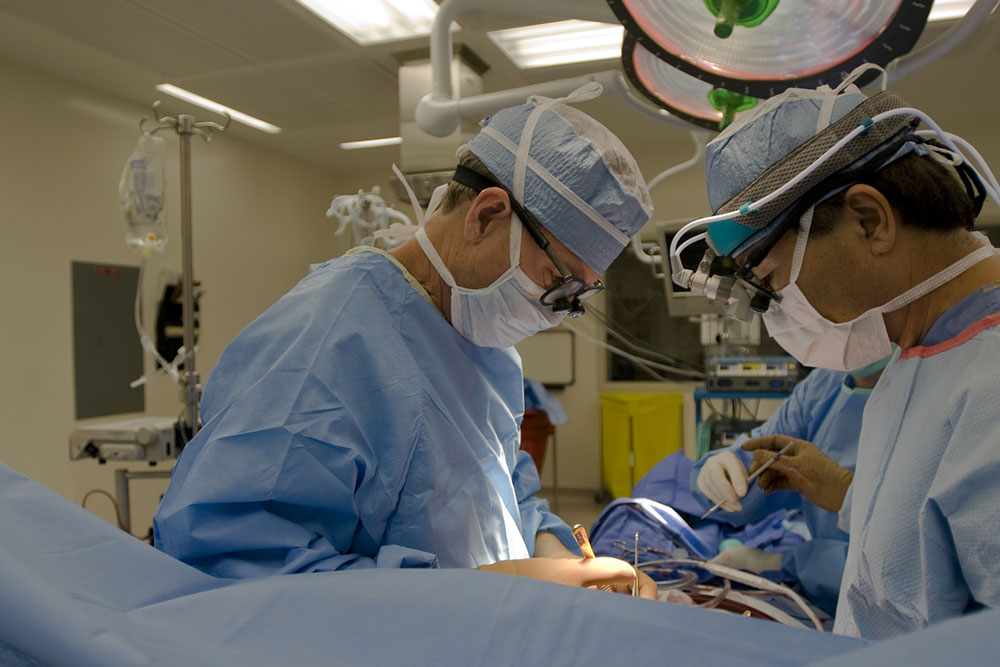Comprehensive Guide to the Cost and Benefits of Gastric Sleeve Surgery in the UK
This comprehensive guide explores the costs, factors, and benefits of gastric sleeve surgery in the UK. It details regional price differences, NHS versus private options, and financing solutions, helping prospective patients make informed health decisions and understand the long-term value of the procedure for effective weight loss and improved health.

Comprehensive Guide to the Cost and Benefits of Gastric Sleeve Surgery in the UK
Gastric sleeve surgery, officially known as sleeve gastrectomy, has gained immense popularity as an effective surgical intervention for individuals struggling with severe obesity. This minimally invasive procedure involves the removal of a significant portion of the stomach, typically around 75-80%, transforming it into a slender, tube-shaped structure often described as a "sleeve." This significant reduction in stomach size profoundly impacts appetite and food intake, enabling patients to achieve substantial and sustained weight loss over time. Additionally, it offers numerous health benefits, including reduction in weight-related comorbidities such as type 2 diabetes, hypertension, and sleep apnea, thereby improving overall quality of life. Many prospective patients, however, are often concerned about the financial implications of undergoing such a procedure, especially considering the costs involved across different regions in the UK. This comprehensive guide aims to provide detailed insights into the various factors influencing the cost of gastric sleeve surgery, average expenses within the UK, and the potential long-term value and benefits associated with the surgery, helping you make an informed decision about your health journey.
What Is Gastric Sleeve Surgery?
Gastric sleeve surgery, or sleeve gastrectomy, is a bariatric procedure designed to limit food consumption by reducing stomach volume. During the operation, the surgeon excises approximately 75-80% of the stomach, resulting in a narrow, elongated sleeve or tube. This significantly decreases the capacity of the stomach, enabling patients to feel full with much smaller quantities of food, which is instrumental in promoting weight loss. Unlike other bariatric techniques such as gastric bypass, the sleeve procedure does not involve rerouting the intestines. This attribute reduces the likelihood of nutritional deficiencies and some common complications associated with malabsorptive surgeries. The procedure is typically performed laparoscopically, meaning small incisions are made, and specialized instruments are used, leading to faster recovery and reduced postoperative pain. The surgery has proven highly effective for long-term weight management, especially when combined with lifestyle changes, dietary management, and psychological support. The decision to undergo gastric sleeve surgery should involve a comprehensive assessment, including medical evaluation, psychological readiness, and a clear understanding of the expected outcomes.
Several factors influence the overall cost of gastric sleeve surgery in the UK, and being aware of these can help you better understand what to expect financially:
Clinic Location and Regional Variations: The geographic location of the clinic plays a significant role in determining the costs. Major cities such as London, Manchester, and Birmingham tend to have higher charges compared to smaller towns or less populated regions, owing to factors like operational costs, demand, and local economic conditions.
Experience and Reputation of the Surgeon: Highly experienced surgeons with a proven track record of successful outcomes typically charge higher fees. While choosing a skilled surgeon might seem expensive initially, it can significantly reduce risks of complications and improve the overall success of the procedure.
Pre- and Post-Operative Care Packages: Comprehensive care packages that include consultations with dietitians, psychologists, and ongoing follow-up support tend to increase the initial cost but can contribute immensely to the long-term success and safety of your surgery.
Hospital Stay Duration and Facility Type: The length of hospitalization, usually between 1 to 2 nights, influences the total expenses. Private hospital facilities with advanced amenities usually cost more than NHS facilities but offer shorter waiting times, more personalized care, and comfort.
Additional Expenses: Costs related to anesthesia, medications, laboratory tests, imaging, and potential follow-up procedures or revisions should also be considered, as they can add to the overall financial outlay.
In the UK, the typical budget for gastric sleeve surgery ranges from approximately £8,000 to £15,000. This estimate generally encompasses the surgical procedure itself, anesthesia fees, hospital stays, post-operative consultations, and necessary follow-up care. While this might seem like a substantial investment, understanding the value and potential health outcomes can make this expense worthwhile.
NHS Versus Private Healthcare Options
NHS Services: The National Health Service offers gastric sleeve surgery to eligible patients, particularly those with a BMI over 40 or over 35 with obesity-related health conditions. However, waiting times can be lengthy, often extending over a year or more, due to demand and resource allocation. Patients interested in NHS treatment will need to undergo a rigorous assessment process, including psychological evaluations, nutritional counseling, and medical examinations, to qualify.
Private Sector Treatments: Private clinics provide faster access to surgery, typically within a few months of initial consultation. They offer personalized treatment plans, dedicated support teams, and comprehensive care packages that include dietary counseling, psychological support, and post-surgery follow-up. However, these services come at a higher cost, which might be a consideration for many patients.
Managing expenses related to gastric sleeve surgery can be facilitated through various financing options:
Medical Loans: Numerous financial institutions offer specialized medical loans designed to cover the costs of bariatric procedures. These loans often come with flexible repayment terms and interest rates, making the payment process manageable over time.
Credit Cards: Using credit cards for payment can be convenient but requires caution due to potential high-interest rates which can increase the overall cost if the balance is carried over multiple billing cycles.
Payment Plans from Clinics: Many private clinics provide the option of installment payments or payment plans, allowing patients to spread the cost over several months or years, easing financial strain.
Though the upfront financial investment in gastric sleeve surgery may seem significant, many patients find that the health benefits and lifestyle improvements justify the expenditure. The surgery can lead to profound weight loss, significantly reduce health risks such as diabetes and cardiovascular disease, alleviate joint pain, and improve mental health. In the long term, it may lower healthcare costs by decreasing dependency on medications and treatments for obesity-related conditions. The decision to undergo surgery should be made after careful consultation with healthcare professionals, thorough research into clinics and surgeons, and consideration of financial options. An informed choice can result in a transformative experience that enhances both physical health and overall well-being, with lasting benefits that extend beyond the initial investment.




